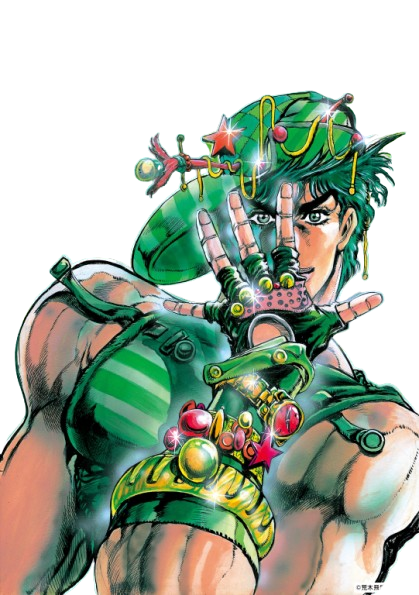Jojo's Bizarre Adventure Part 1: Phantom Blood
Plot Summary of Part 1
Part 1 of Jojo's Bizarre Adventure, Phantom Blood, is a story of Jonathan Joestar (Jojo) fighting to stop his evil adopted brother, Dio Brando. The story follows the two from adolescence into young-adulthood, and follows Jojo's journey in learning how to use hamon (or the Ripple, depending on translation).
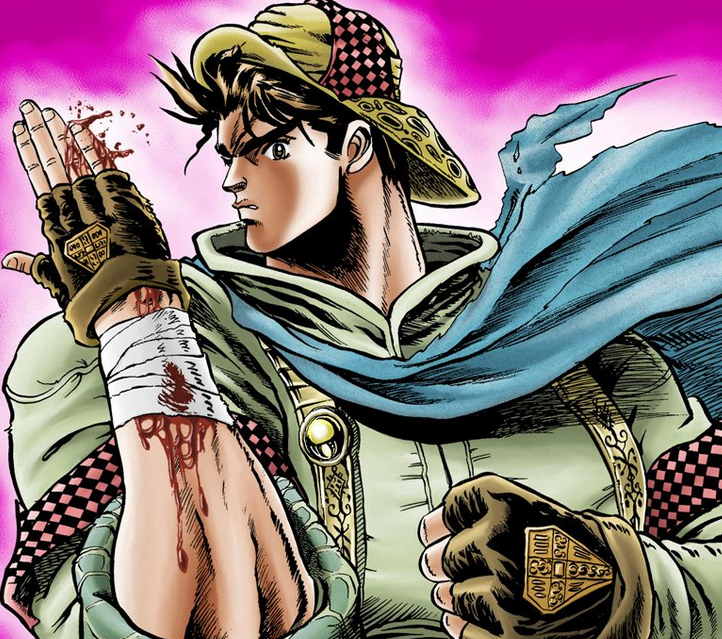
Part 1 starts with setup to how Jojo and Dio came to be adopted brothers. There was a carriage crash in which Jonathan's mom died, and, suspecting the others involved to be dead, Dio's father (Dario Brando) begins to loot the wreck. Jojo's father, George Joestar, and Jonathan himself were not dead, and George believes Dario to be his savior and someone that he owes a great debt to. As Dio's father is dying, he tells Dio to live with the Joestars (who still believe themselves to be in debt to Dario), and to become wealthy and powerful. With that, Dario dies, and Dio does as he says, though not without scorn for his father.
When Dio and Jonathan meet, things are already off to a disasterous start. Dio kicks Jojo's dog, but Jonathan tries to brush it off and be polite and brotherly. For the next several years, Dio ostensibly tortures Jonathan in all manner of ways. Jojo's only respite is in the girl he had befriended, Erina Pendleton. Eventually, even this Dio takes from Jojo, and in turn, Jonathan becomes incredibly lonely and isolated.
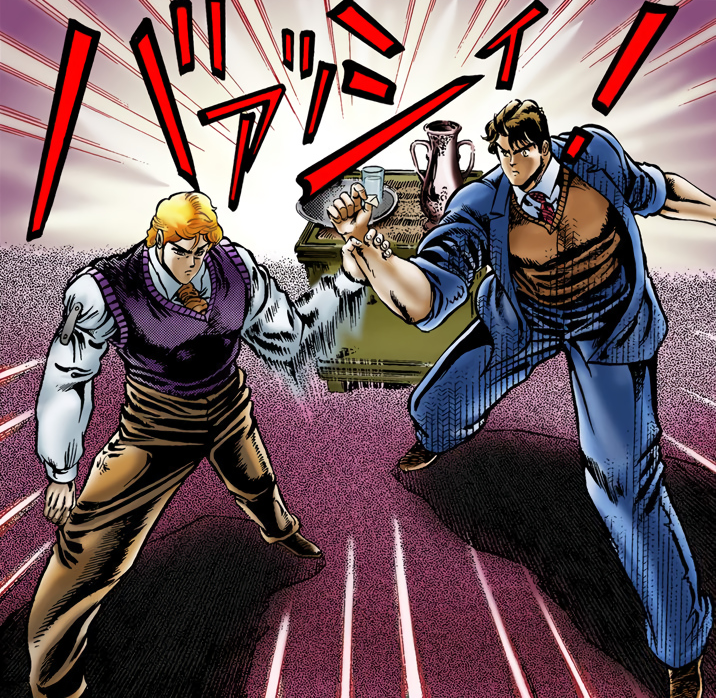
Time passes, and George falls ill. The symptoms are eerily similar to that of Dario's, and thus Jonathan believes Dio to be poisoning his father. This causes Jonathan to go to Ogre Street to find the source of the poison, where he meets Robert E.O. Speedwagon. Sppedwagon, after a brief tussle, helps Jojo track down the source of this poison. While this is happening, Dio learns the ability of the stone mask: to turn someone into a vampire.
Jonathan returns to the Joestar manor, and Dio is declared guilty of poisoning George Joestar. After a long altercation, Dio uses the stone mask on himself and transforms into a vampire. Their fight contoniues, Jonathan is injured, and the Joestar manor burns to the ground.
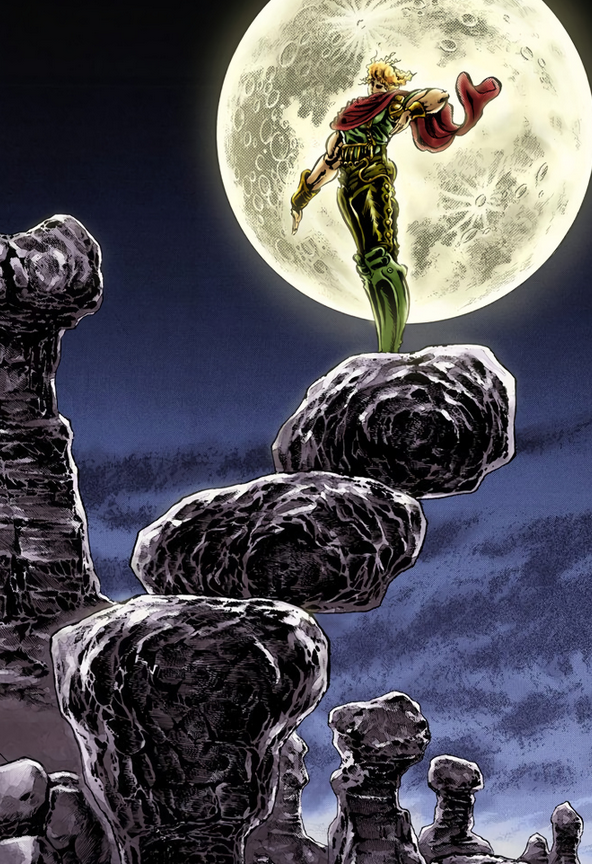
Speedwagon takes Jonathan to a nearby hospital, and none other than Erina nurses him back to health. From there, we also meet Will A. Zeppeli, who promises to teach Jonathan hamon to defeat Dio and destroy the stone mask. He agrees,, and trains with Zeppeli to learn hamon, all while accompanied by Speedwagon.
From here, mostly a lot of fighting happens, but in the (almost) final confrontation with Dio, Jonathan is believed to win. He marries Erina, and the two of them board a boat to America to start a life there. This is not the last of Dio, however, as he reappears with them on the boat, and Jonathan sacrifices his life by making sure the both of them sink to the bottom of the ocean. Erina survives, as well as an infant child who happened to also be on the ship.
And that is the very abridged description of Jojo's Bizarre Adventure Part 1: Phantom Blood.
My Personal Thoughts on Part 1 Overall
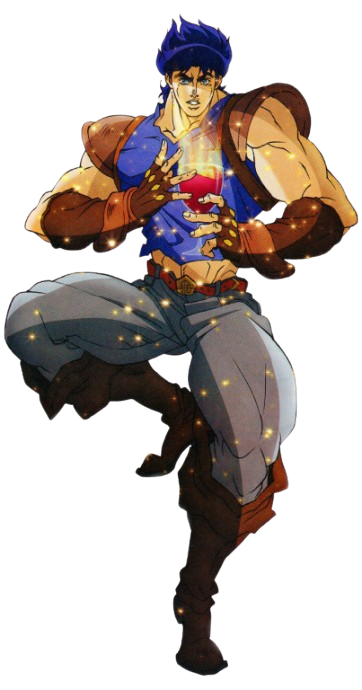
I quite enjoy Part 1. It's not my favorite, but as a story it is really engaging and incredibly bittersweet. It's a little short, but in some ways I think this works in its favor as a succinct story. The ending and the inevitable futility of Jonathan's struggle really gets to me. It also works incredibly well as an introduction to the series, as there's very little work required by the reader to suspend your disbelief. A few strange things happen, but ultimately it puts me in mind of like... the same level of suspension of disbelief required to watch a good Kung Fu movie.
Overall, I think the only reason I like part 1 less is because it just makes me wish I was reading Fist of the North Star. It's not that Part 1 is bad, it's definitely not, it's just that FotNS is one of my favorite pieces of media... ever. It's a really good part, even if I find myself enjoying other parts of the series way more. I will also say, rereading Part 1 after having read the other parts so far makes it really upsetting. I keep thinking about how Jonathan absolutely would not have wanted any of his descendants to deal with this. I wish Jolyne and Jonathan could talk. UGH !
Part 1 is a really good romp though, I will say. It genuinely feels like a martial arts movie to read and I find that a really endearing experience. I love Speedwagon especially he's like the world's best hypeman. I love that Dio is comically evil and doing weird shit in Part 1. It's like he's learning what the limits of his vampire powers are by being sily and evil.
Also what was with the Jack the Ripper stuff. I can't tell if there's some kind of metaphor I'm missing or if it's supposed to be set dressing or if it's a classic "Araki just doing whatever the fuck he wants regardless of what his editor says" moment. I genuinely don't get it. Does anyone get it. Help.
My Thoughts on the Manga
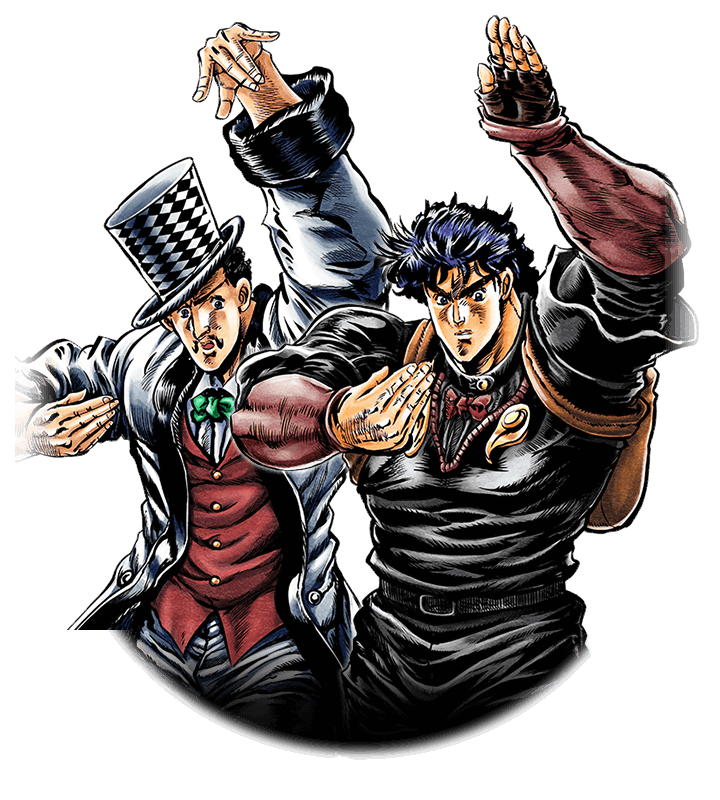
Reading the manga was my first experience to Jojo's and reading part 1 in particular is an interesting experience. When I first read through the manga, I read the black-and-white version of the manga, and spent a large part of it being... kind of fascinated? Everything i'd seen of Jojo's had always been in color, but getting to see what his art looks like uncolored, especially his older art, is so interesting. The artstyle of part 1 feels So 80's in a way that the anime just doesn't nail as well. Jonathan and Dio look so wonderful in this original art style of Araki's, simply because it is so... 80's shonen. It's kind of interesting to me as well, because for all that JJBBA takkes from Fist of the North Star, his art style is so wholly different. It's a very striking style to me, because Jojo's is so much more... violent and into body horror than most other 80's shonen. It really feels almost seinen adjacent at times. I am a big fan of the manga overall.
While making this shrine, I read the color version of part 1 instead, and I have to say, it givs it a completely different experience than the black and white version. Between the style of part 1 and the colors of part 1, it really puts me in mind of the comic books of the 80s and 90s. The combination of airbrush and screentones is really interesting to me with Part 1.
The manga, overall, is a really good read. It's short and bittersweet, and doesn't overstay its welcome. The 60 chapters of story feel well-thought and deliberate, and it was easy both on first and second read to feel engaged with the story the whole time. Jojo's occasionally suffers from some weird pacing, but I think due to part 1's length, its pace remains relatively consistent throughout. It was definitely a good introduction to the series, and I enjoy my time spent with it.
My Thoughts on the Anime
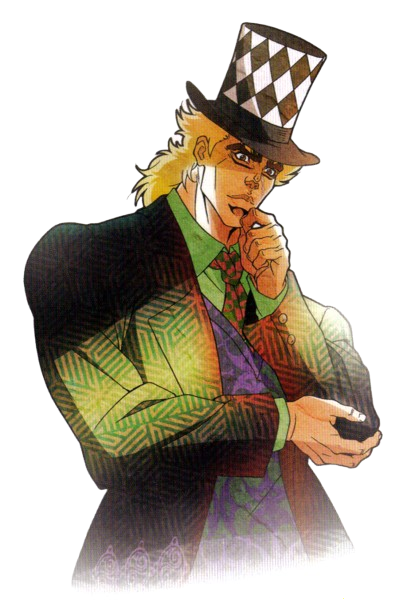
The anime adaptation of Part 1 is only... 9 episodes long? That seems like... really short. I get that it's only 60 chapters but idk.. couldn't you guys make it 10 or something. The hamon training arc was like. What. 2 episodes? Whatever.
The OP is FIRE though, it's so good. Makes it worth it. Wish I got to HEAR IT MORE!!!!!! I enjoy the animation of part 1 a lot, it feels a little more classic Jojo's art style than the manga does, which I get. I like how Dio looks in the anime especially. Evil vampire hunk... love that for him. Personally, I'd rather read the manga, but the anime is pretty alright too. I mostly just like the anime for the OP and for how some parts are animated. It kindof just makes me wish I got to see the Phantom Blood Movie... I bet it would have been so fire even if it was bad. Oh well, we have this and it's still pretty damn good
Themes of Part 1
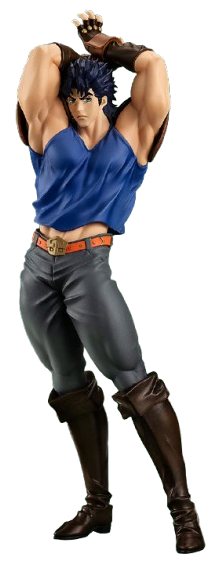
Part 1 of JJBA is interesting to me, in part because its themes feel way less sound than later parts when looked at in isolation. While every later part feels like it has an incredibly sound thematic tie, part 1 I really struggle with parsing a deeper theme or message from.
That's not to say that part 1 is without themes, just that I feel Part 1 is perhaps the least considered, which I think is pretty normal for the first part in a long-running series. Especially in one that is ostensibly just a love-letter to the media that inspires it.
So what exactly are Phantom Blood's themes?
The easiest place to start is with what Araki himself has said about Part 1. To quote him directly, "the theme of this work is 'living'. Through the two main characters, I want to examine two ways of living. It's all about singing the hymn of battle between 'human' and 'non-human'" (source link here). Or, put in other words, it's all about duality. This is a story simultaneously about the dualities of good and evil, humanity and inhumanity, luck versus pluck, and life (hamon) and death (vampirism). These dualities are pretty clearly explored within the story itself, and in various ways. It's unfortunately not something I really have to point to specific examples to discuss, because it's pretty clearly about all of this from the start. The nature of the struggle between Jonathan and Dio is very clearly meant to highlight this duality, so it makes sense that this is the easiest to identify as an over-arching theme. Much like any good martial arts movie, we need a cosmic duality (usually something like good versus evil) to set up the plot overall. Kinda classic stuff, really, and I appreciate that in it's simplicity.
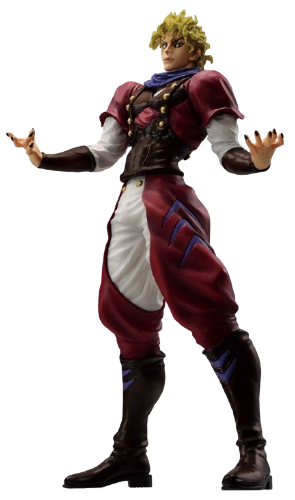
Something that gets me as well is that Part 1 is largely a story about identity. Jonathan and Dio are struggling to find their identities, and this is portrayed in two different ways. Jonathan is struggling to find an identity as a noble and as a gentleman (not that he isn't a gentleman, but these are things that he actively has to work towards, not things that are necessarily inherently understood to him), and Dio is losing his identity as he steeps himself further and further into the pursuit of power. A prime example of Dio losing his identity and self-perception is when Dio is seen drinking in chapter (insert number here) before putting the stone mask on a random person. In his pursuit of power, he loses some fundamental view of himself (being wholly different from his father, Dario) and has a hard time reconciling with this fact. Jonathan's struggles feel slight in comparison, but his struggles are also relatable. His heart is in the right place, but that does not always guarantee his success. These sorts of things are very important for building an identity as you age, and so Jonathan's struggles place him through a lens that the reader is able to understand him through.
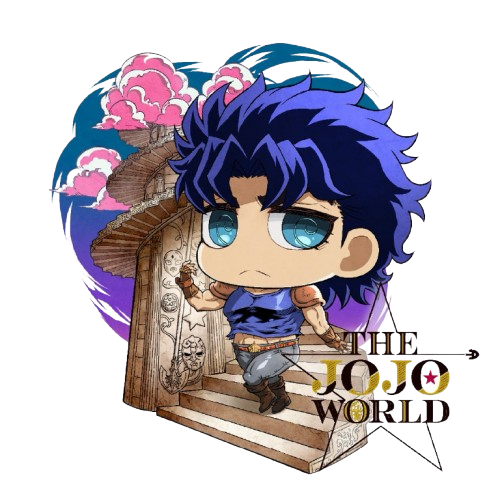
When digging a little deeper, things become a little more interesting than on the surface, I believe. Something I think is little discussed when thinking of Part 1 is the characters belief in something being "deserved". Dio is one of the prime examples of this, believing himself deserving of power and wealth due to his prior circumstances. He deems himself to be more deserving than Jonathan. The most prime example of this, to me, is when Dio forces a kiss upon Erina. He views himself as the more deserving of the two to gain affection and companionship. It is not just a play to ruin Jonathan or make him jealous, but also a show of control and superiority over Jonathan. He views himself as the most deserving of the two, and takes from Jonathan as he sees fit. In turn, this parallels him, interestingly enough, with Speedwagon. Speedwagon is also a poor man from a similar background, and yet does not view himself as this deserving. While it mostly is an interesting character foil for the two, I do find it interesting. Speedwagon as a supportive character who does not view himself as inherently deserving makes it so that the assumed theme would be to not make assumptions about what you deserve based on your past experiences or your abilities.
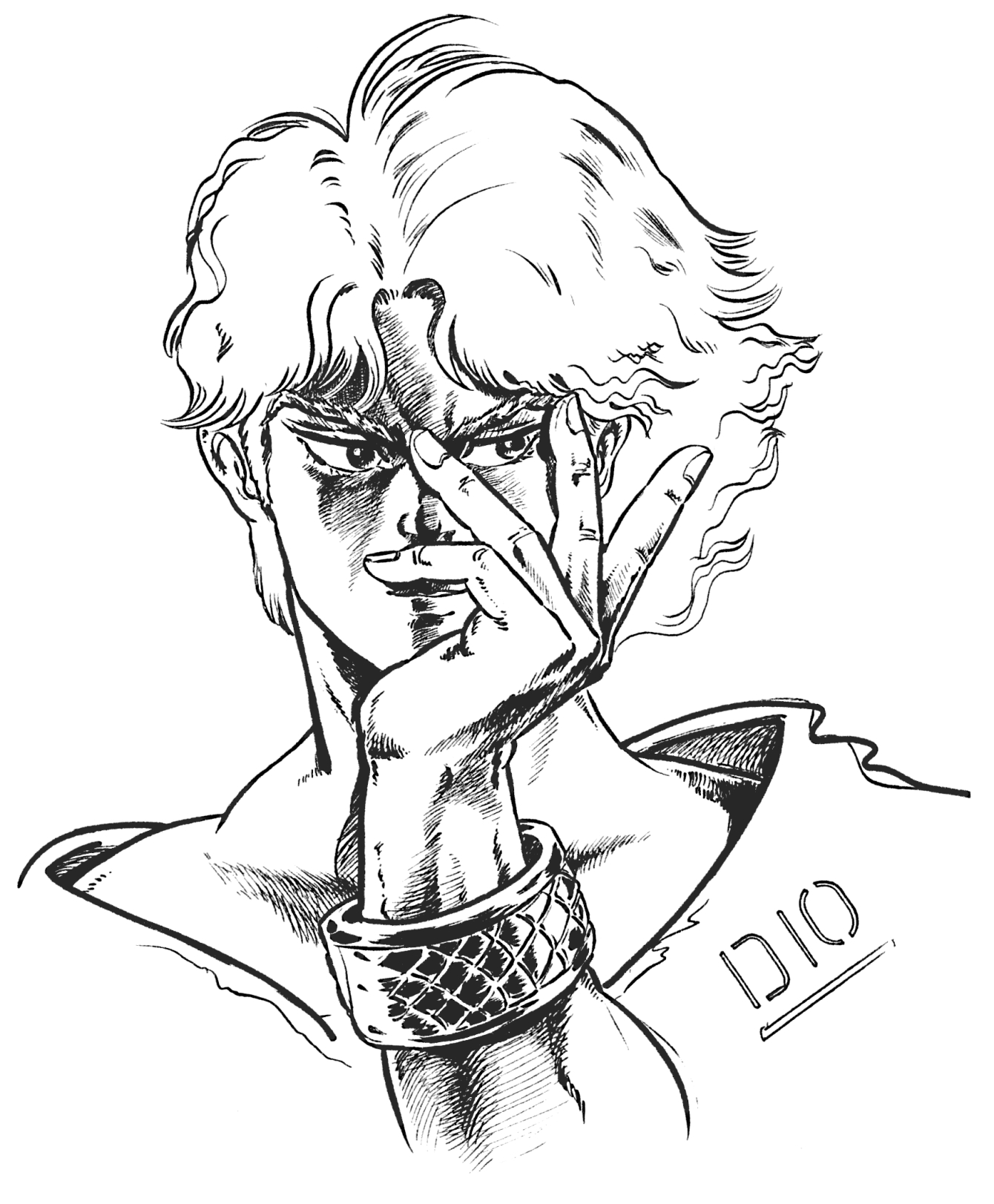
One may take a "pull yourself up by the bootstraps" mentality for this, but I do not believe that to be the case. I think it is less stating that you just have to be tough to earn your lot in life, but rather that being dealt a certain hand in life (good or bad) does not mean you are guaranteed anything on either end. Everything is taken from Jonathan and Dio both, in the end, because neither of the two are seen as inherently deserving of anything. It's an interesting moral to take away from a story, that your inherent "goodness" or "badness" does not make you any more or less deserving of any experience in life. It makes the tragic ending of Part 1 hit... harder? To me? To say that Jonathan and Dio are ultimately neither more deserving of anything that has happened to them, or that they have had or been given.
Finally, there's the overarching theme of Jojo's, that with which the rest of the series will be built on, is that of inheretance. This is less of a theme of Part 1 on it's own, but rather what Part 1 leads to with everything else. This is something better discussed in later parts (specifically Parts 3 and 6), but it will probably come up in every single part moving forward. Being related to the Joestars is a curse. It reminds me of the Belmonts in the Castlevania series. This is something else that I will probably say a LOT. Something about stories of inhereted fates just get to me, I guess.
So What Does The Stone Mask Represent?
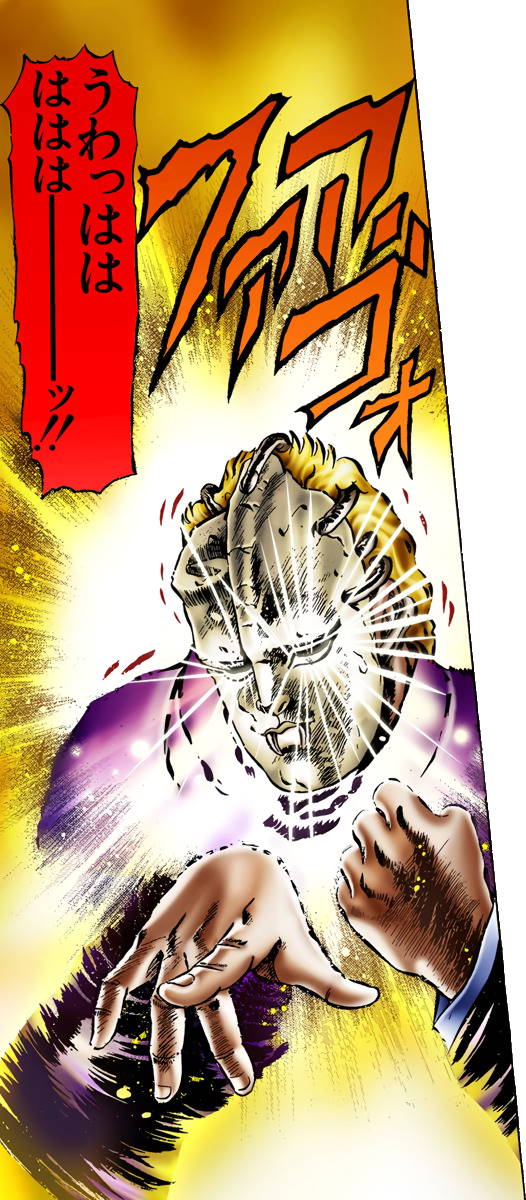
Thank you for asking, person I made up to answer this question for! The stone mask represents a lot of things throughout the series, but I think within Part 1 it represents things to both Jonathan and Dio that are wholly different.
To Jonathan, the stone mask is a symbol of everything that has gone wrong in his life. From his mother's death to his own at the hands of Dio, everything that has happened to him can be traced to that mask. It is a symbol of doom for Jonathan, and yet he chooses to study it and try to understand it, before Dio takes the mask for himself. Jonathan choosing to have a vested interest in the mask is interesting, to me. It's a symbol of all of the bad things that have happened to him, and yet, much like his relationship with Dio, he chooses to try and understand it. It speaks to Jonathan;s character in many ways, that he is so willing to learn, rather than to destroy it.
To Dio, I think the mask represents freedom, in many ways. It is, to him, ultimate power and control over his life. The stone mask is something that allows him complete control over his will, his body, and those around them. Through the mask, the world becomes his oyster. While to Jonathan it represents despair, to Dio it represents hope, in many ways. This is not to say I think Dio's actions are particularly justified, just that Dio has a lot going on beneath the surface in terms of his motivations and actions in relation to the stone mask.
These two things in tandem are perhaps things that should clash with each other, and in many ways they do, but I think this leads in greater service to the overall dualisitic nature of Part 1. If Part 1 is all about duality, than Jonathan and Dio's differing views on the Stone Mask is one of the greatest symbols to represent it.
Jonathan Joestar
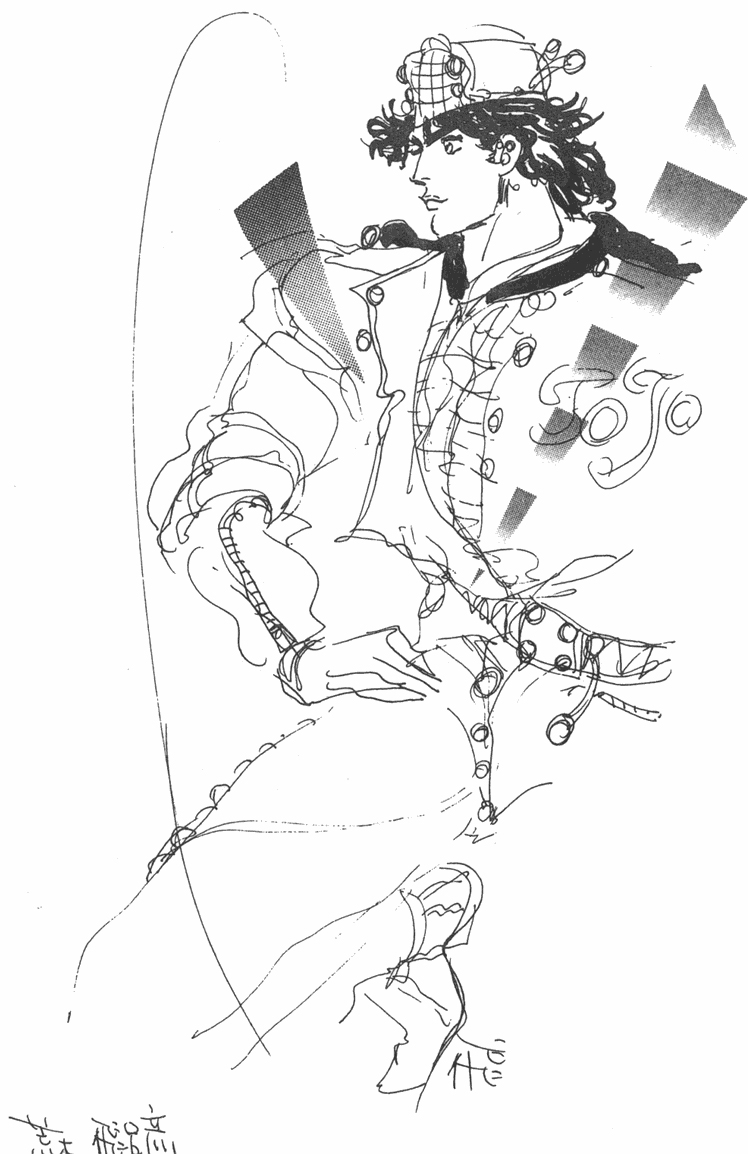
Due to the nature of Part 1, we get a pretty interesting look at Jonathan's progression as a character and who he becomes since we see him both as a child and adult.
As a child, Jonathan is... well, a child. He has a strong moral code and a drive for justice. He strives to be a gentleman, and to sume degree is, but he's also just a kid who does things that kids do. He's not a straight A student, he's a messy eater, but his heart is in the right place.
His biggest character trait throughout Phantom Blood is his kindness, this is the driving force for everything Jonathan does, and the motivation for how he engages in everything. Jonathan truly cares so deeply about people and everything that happens. His defense of Erina, his friendship with Speedwagon, and his constant forgiveness of Dio are acts of his kindness. This is simultaneously his best and worst character trait, making him sometimes woefully naive and other times his impact on others is so strong that it changes them completely.
Dio Brando
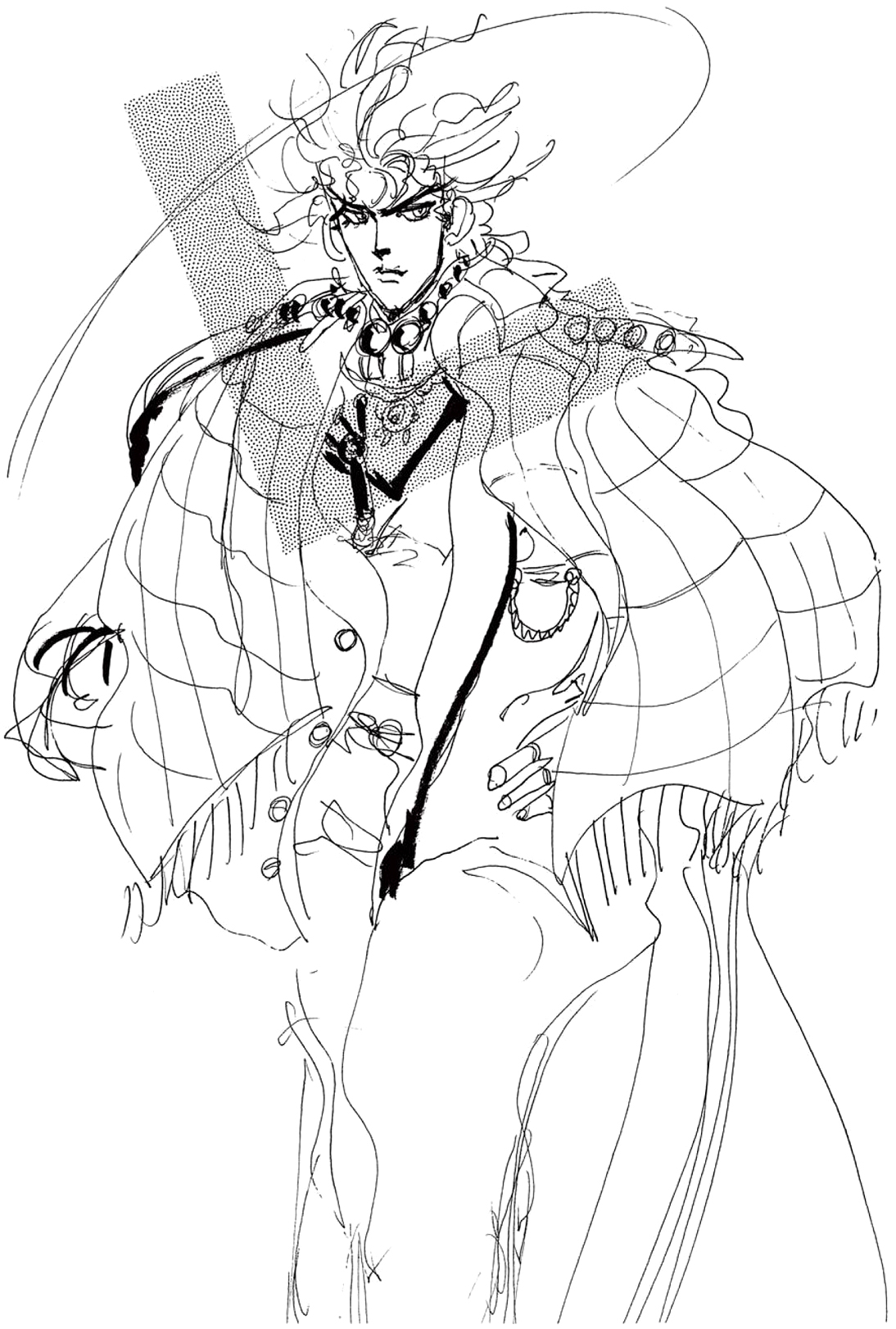
Dio Brando is a really interesting character to me, but one I had to really warm up to. In rereading Part 1 of JJBA, I've especially warmed up to him.
In the pre-timeskip part of JJBA is really interesting to me because Dio, like Jonathan, is so 12 years old. The scene that really gets to me when I think of Dio as a child is that of when George Joestar is telling him about Jonathan's dog, Danny. There's some very specific and intentional framing and panneling within the manga that places emphasis on Dio's reaction to hearing this story, which I think is twofold. On the one hand, he's learning from this information that the way to connect to Jonathan is to antagonize him, and while this is wrong and he takes it way too far, it's not hard to think of why Dio would take this meaning, to some degree. I don't think him learning about this is just to scheme about how to ruin Jojo's life.
Rather, I think this has to do in larger part with the themes of poverty in Jojo's and coming from deeply unfortunate circumstances is that Dio learns that this very spoiler rich kid treated this dog like shit, and I don't think it's unfair to say that where Danny came from he was likely abused based on his reaction (even if they are a normal reaction for a dog to have). It's not hard to see Dio relate to Danny, in some way. Dio does what he does to Danny I think in large part to show triumph to himself as well. Part 1 is largely about Dio and about Dio's shame and self-loathing towards himself and his childhood and what he had to do to survive. By killing Danny, he is trying to show triumph over this part of himself.
It pretty clearly does not work, as the next major character moment we see from Dio is him drinking and comparing himself to his father. He is once again just haunted by shame for who he is, how he was raised, how he acts. Dio in Part 1 has such poverty syndrome to me: having to try and prove that he is the best in spite of him being poor: the best at manners, the best at knowing things, going to the best school, getting the best job, never being a burden in any capacity. It's really interesting to think about.
Another thing I find interesting is Dio's relationship to mother figures in Part 1. The death of Dio's own mother clearly weighs heavily on him, one of the few people Dio shows a magnitude of care towards. Upon rereading part 1, I found the scene where he turns the woman begging him not to harm her baby interesting. In many ways, I think it's another way for Dio to try and triumph over himself and his past, but I also think there is a focus here on how Dio has come to feel about his mother. He feels abandoned, like his own mother fed him to the wolves, in many ways. By taking it out on this random mother and his baby, we are given an interesting narrative parallel and look into Dio's psyche.
Erina Pendleton
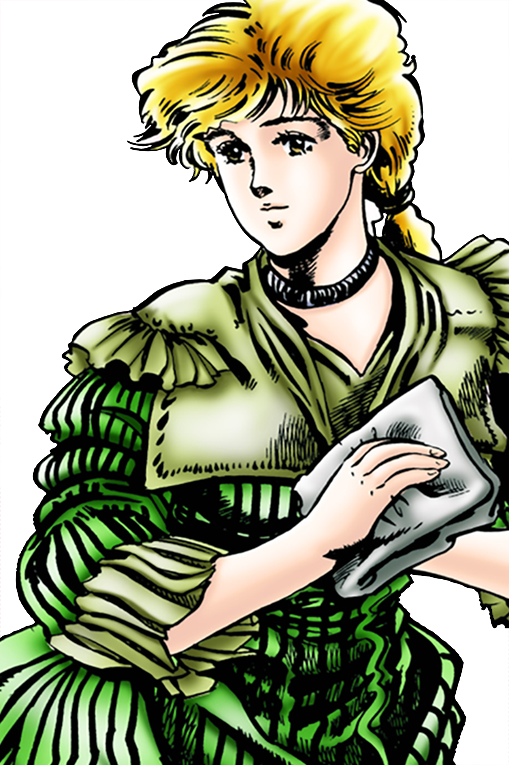
Erina Pendleton within part 1 of JJBA is such an interesting case study, to me. She is similar to Jonathan in the sense that she is kind-hearted and raised to be the perfect example of nobility, but what really strikes me about her is that unlike Jonathan, she takes no shit. The first real scene where we get to look at her character outside of Jonathan is her washing her mouth out with dirty puddle water after being kissed by Dio, and if that isn't the sort of move pulled by a bad bitch, I don't know what is.
I don't know if I would say the writing of Erina in Part 1 is particularly good, but I do find it interesting. She takes no shit, but she does care deeply about Jonathan, and what Jonathan does and says. When Jonathan says to save the infant, she always seemed, to me, to feel a little bitter. And who could blame her, with her husband leaving her a widow before they had even honeymooned. She loved Jojo deeply, and because of that she listened to him, but I think that it wouldn't be unfair to say she in some ways resented all of the things that happened.
Her resentment towards Dio feels twofold, as her relationship and love has always been cut short by Dio and his schemes. It's painful to think about, and I really feel for Erina's plight as someone who would have historically had a hard time fighting. She did what she could to protect both herself and Jonathan and I think that it's worth noting, regardless of how you feel about how she is written overall. Perhaps I am just lenient with Jojo's because it's far from the worst writing I have read, but I think even from Part 1 Araki was able to write a woman who, if a bit bland, still has compelling moments. Like the puddle scene.

